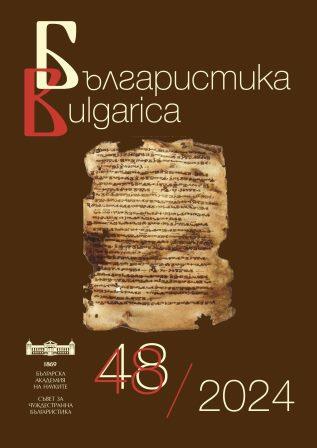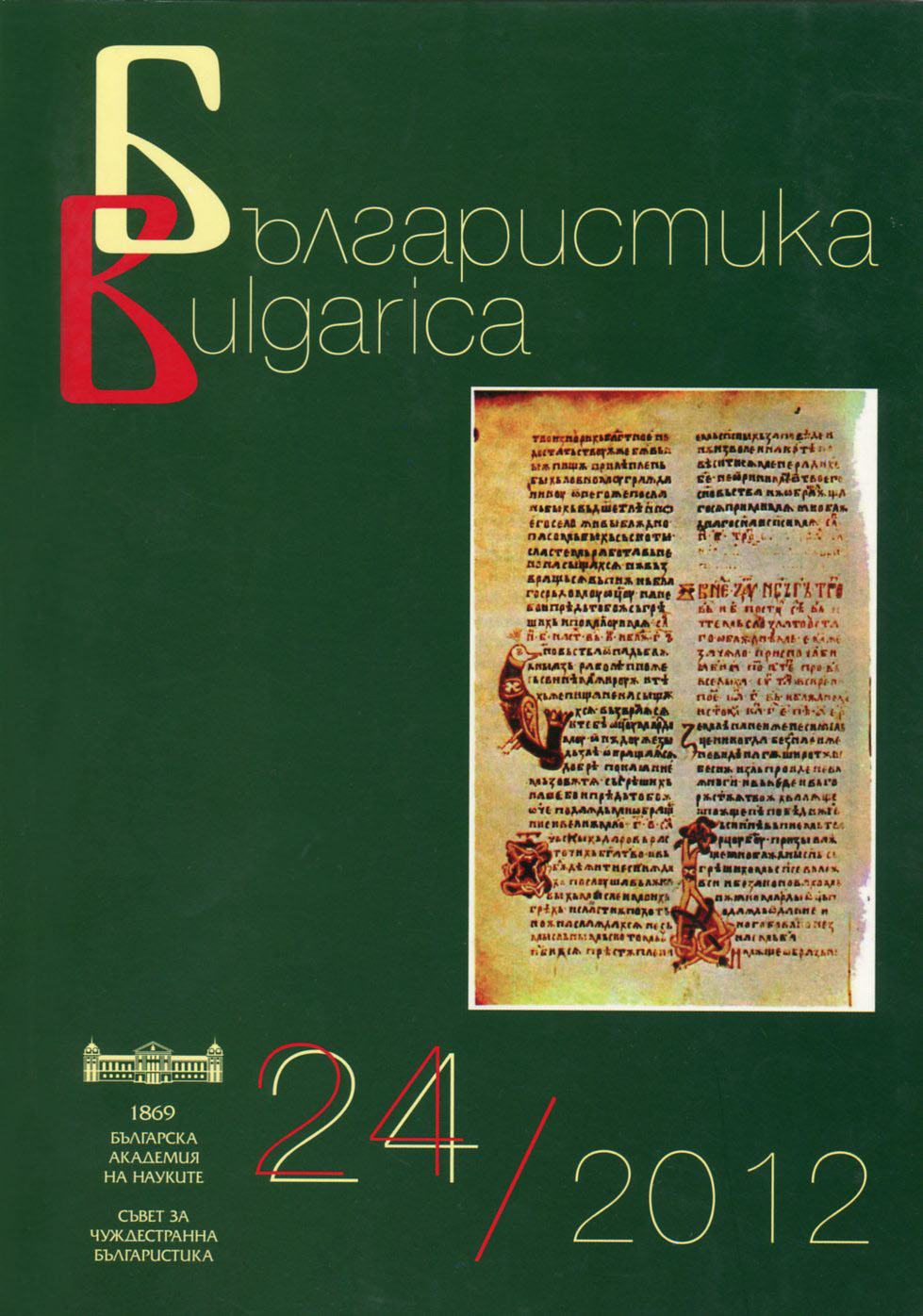
Книги 2011–2012 г.
Selected bibliography in the field of Bulgarian Studies published in the current year
More...We kindly inform you that, as long as the subject affiliation of our 300.000+ articles is in progress, you might get unsufficient or no results on your third level or second level search. In this case, please broaden your search criteria.

Selected bibliography in the field of Bulgarian Studies published in the current year
More...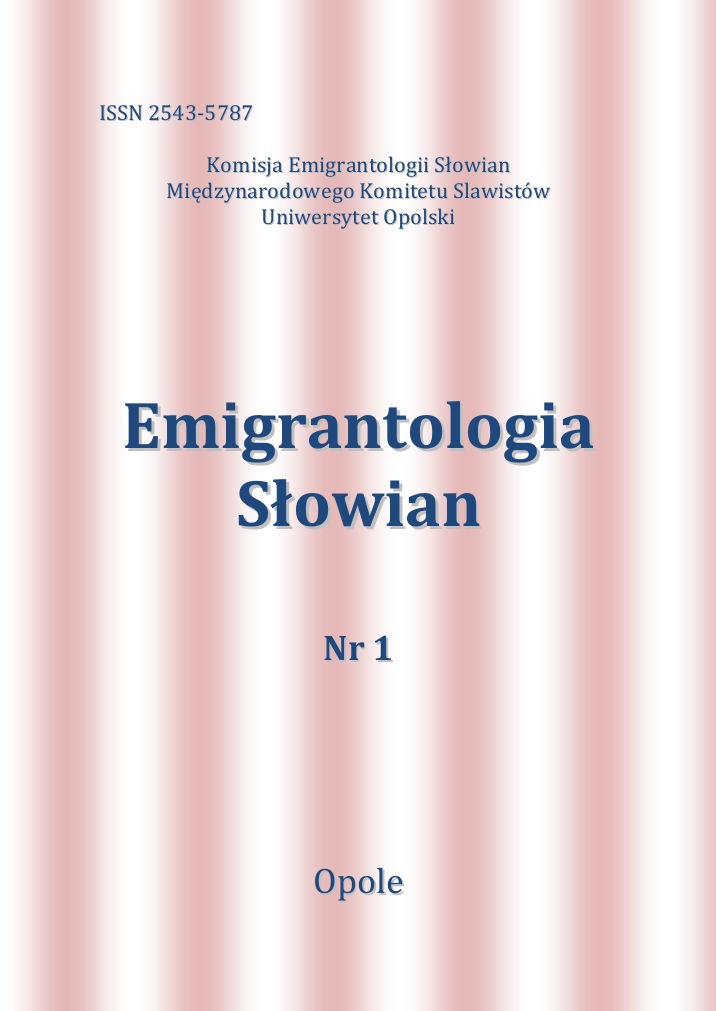
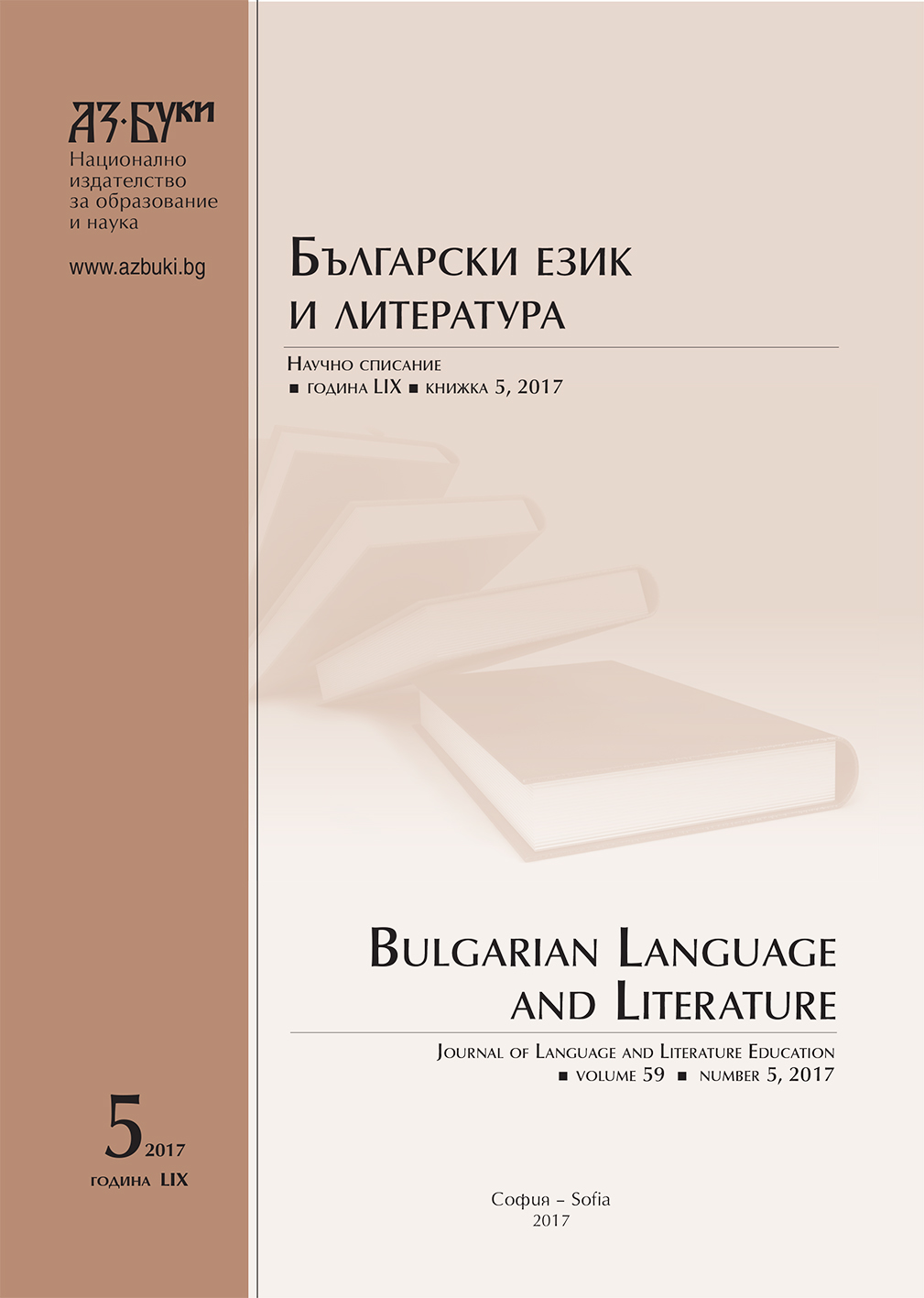
This article presents a possible model for teaching 9th grade Literature material related to the Bible and the Old Bulgarian literature by applying the knowledge that the students have acquired during the Information Technology classes. The demonstration of the student presentations about famous Bulgarian monasteries favors the formation of teamwork skills, the creative usage of the Internet resources and the improvement of the knowledge connected with the subjects studied in 9th grade.
More...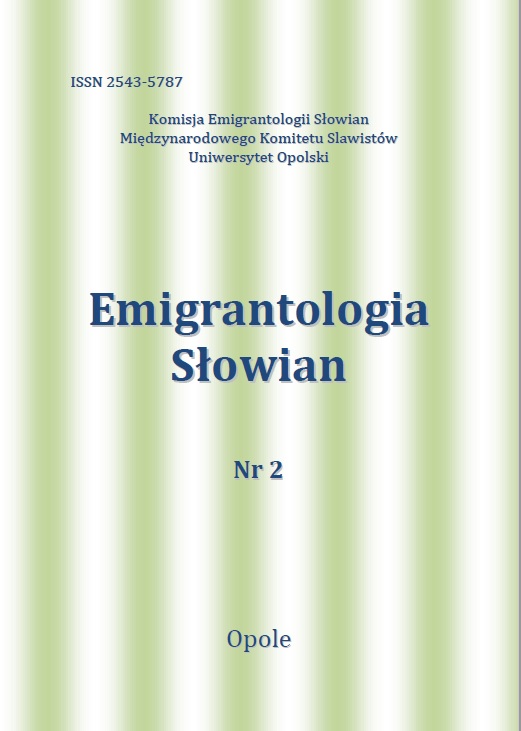
Conference report on an international scientific conference “Old Believers Abroad”, held in Toruń 19th-20th September 2016. The conference was devoted to various aspects of life of Old Believers’ communities outside Russia, as well as the problems of Old Believer emigration and general questions of Old Believerism.
More...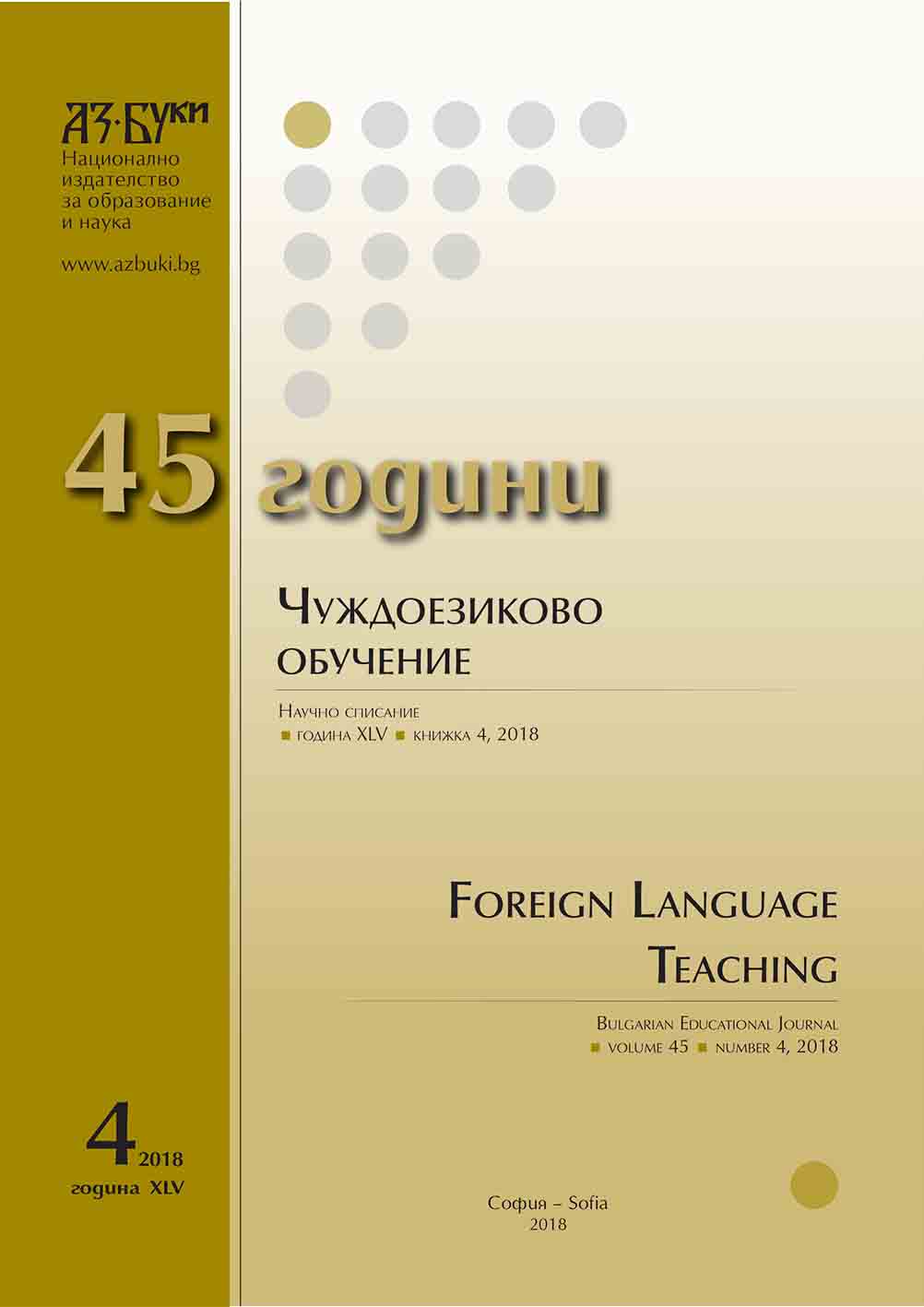
The article aims to analyze the functional load of Russian ball dance that represents fragments of XIII – XIX century sociocultural history and life in their correlation with modern reception and practice of teaching Russian as a foreign language. The author’s vision of the place and significant role of the ball dance in Russian culture, especially literature and art, is revealed. The focus is put on the phenomenon of ball dance etiquette and ceremony, suggesting a great variety of topics and different methods of exploring this outstanding cultural emblem, described from the point of view of synergy, imagology and innovative technologies, used in the process of teaching foreign languages.
More...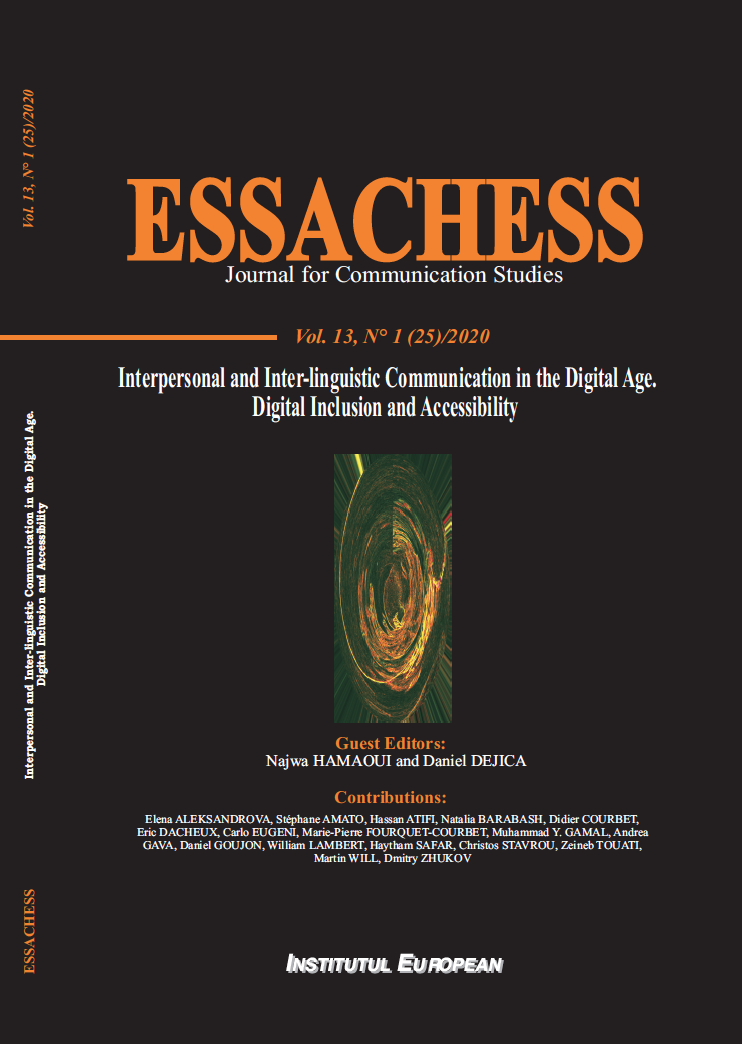
The article provides an overview of audio description landscape in Russia and Greece. It dwells upon the legal issues of providing audio description, comparing national legislation on media accessibility and Declaration on the Rights of Disabled Persons, and their impact on the development of media accessibility services in these countries. Special attention is focused on describers’ training both as degree training and further education courses. It also highlights insufficient financial support of accessibility services as one of the reasons for the slow development of Audio Description in Russia and Greece. The article analyzes the new opportunities for providing media accessibility, such as mobile applications and voluntary projects. It also presents an example of a service which can be viewed as a best practice to be shared and spread across other countries – an application Искусство.Вслух (Art.Vocally) with audio descriptions of theatre plays voiced by prominent actors and actresses, that was funded by one of the biggest banks of Russia. The article concludes by listing the possible solutions which might spur the development of Russian and Greek audio description
More...
This article questions the linguistic mediation through the analysis ofpractices related to virtual technology tools in the field of users with visual andhearing impairment taking into consideration their sensitivity and civil rights. Theissues of the inclusion of a person who does not speak the language of a conferenceas well as the inclusion of a deaf, hard of hearing, blind or partially sighted audienceare discussed on the basis of a methodology that articulates the comparativeapproaches by comparison and / or distinctions of audiovisual translation platforms(with emphasis on Discord) and interview with users and trainers in audiovisualtranslation and linguistic mediation. The results highlight that digital inclusion ispossible and effective depending on the devices suggested and tested, with usageprotocols in place that favour free access
More...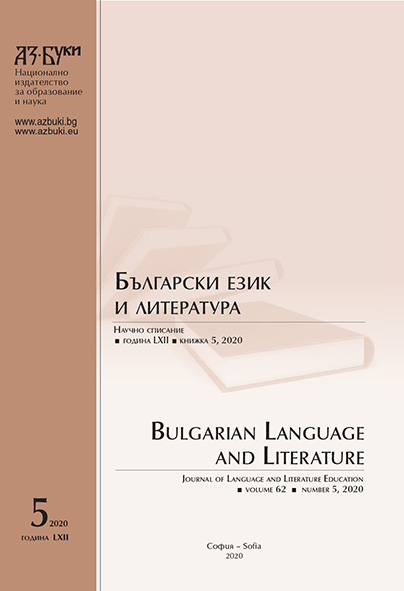
According to most Bulgarian grammars and the majority of researchers studying the Bulgarian perfect, its indicative forms are built from aorist participles and not from imperfect ones. This is an inadequate thesis that must be corrected. Analyzed in the paper are many examples with perfect verb forms built from imperfect participles. The relevant specificities in the semantics of the perfect, the aorist and the imperfect are investigated, and a firm conclusion is made that the Bulgarian perfect must be regarded as formed from both aorist and imperfect participles.
More...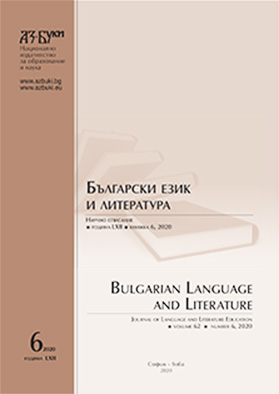
This article aims to explore the manifestations of horror in Czech and Bulgarian folk tales. Various demonic characters, which are typical of Czech and Bulgarian folklore are compared, аnd the focus being placed on man’s encounter with the supernatural being and the fearful situation that it gives rise to. The function of the scary character in these plots is predominantly harmful and is built on the conflict between man and demon. The presence of the scary is universal and has its own peculiarities in the various folklore genres, and in fairy tales we can highlight the following functions: entertaining, ethical, pedagogical (didactic), therapeutic and cognitive.
More...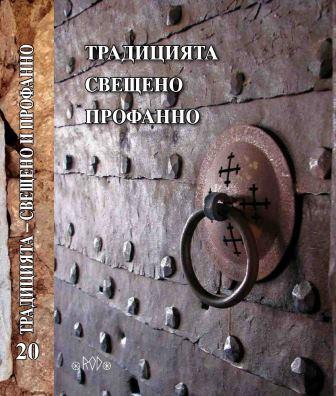
The report is written in connection to the language of a book “A Small Collection of a letters”, composed by the Bulgarian Revival writer Nicola Mikhaylovsky. The article exposes important grammatical peculiarities of the language of this text. The review shows that Nicola Mikhaylovsky contributes to the approval of a series of grammatical norms, inherent to the contemporary Bulgarian language.
More...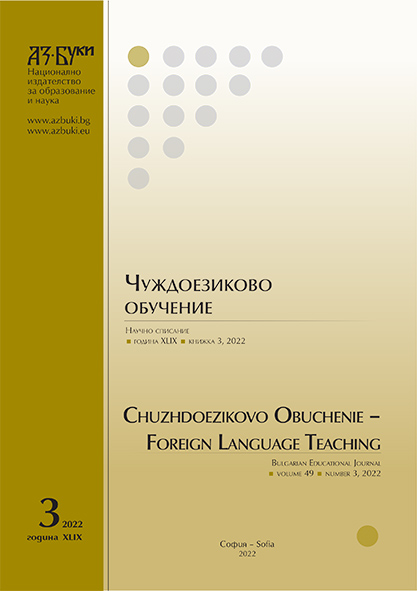
The aim of the article is to present the history of a French loanword, introduced in Bulgarian language by the poet-publicist Hristo Botev. The research is within the realm of diachronic empruntology, viewed as a science for tracking interlanguage lexical transfers in their chronological order. The object of research is the lexeme "francophile", in the process of work the method of empruntological diachronic analysis being applied, which includes establishing the first text fixation of the french loan in standard Bulgarian language. The fate of the word in French and in Bulgarian languages is presented. Parallelly with this different derivative forms, which are compared to their Bulgarian counterparts. The results obtained allow for reconstruction of Bulgarian language fate of the French lexical creation "francophile" in a formal and semantic perspective, allowing for comparison of connotative uses of the French loan word francophile.
More...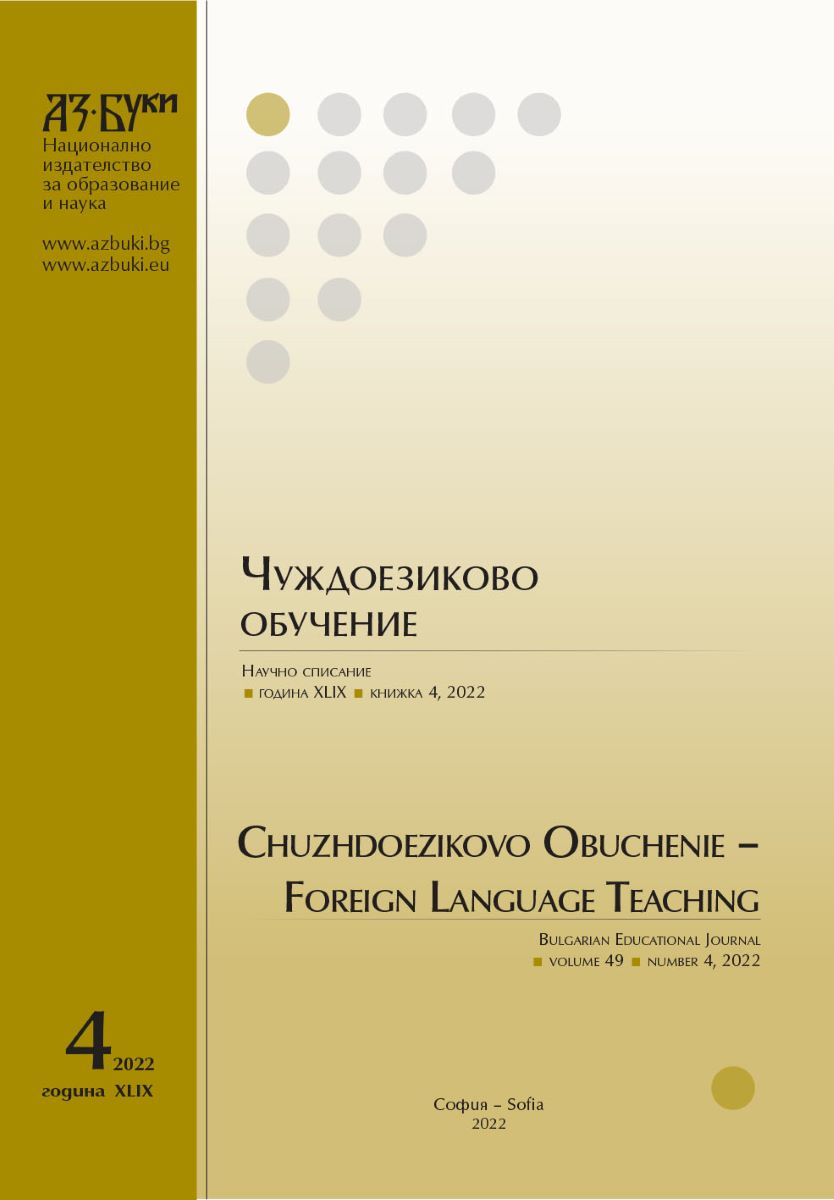
Emiliyan Stanev’s unfinished short novel The Black Monk still remains on the margins of his oeuvre, and also of research interest on the part of Bulgarian literary studies. On the other hand, the plot and the eponymous character fit it into a wide network of works by English, German, French, Russian and other authors, in the traditions of Gothic, Romanticism, Realism and their varieties, where the ‘Black Monk’ motif is a locus communis. I call the potential of such loci communes to form sets of works partially connected by separate, often contextually undetermined threads, polyvalent intertextuality. Comparing through it works by different authors, from different genres and nationalities, I come to the conclusion that their interaction can be described, in terms such as de- and reterritorialization (Deleuze and Guattari), as rhizomatic and gothic. This paper does not range over historical-philosophical, ethical, socio-political, etc. aspects of Stanev's work.
More...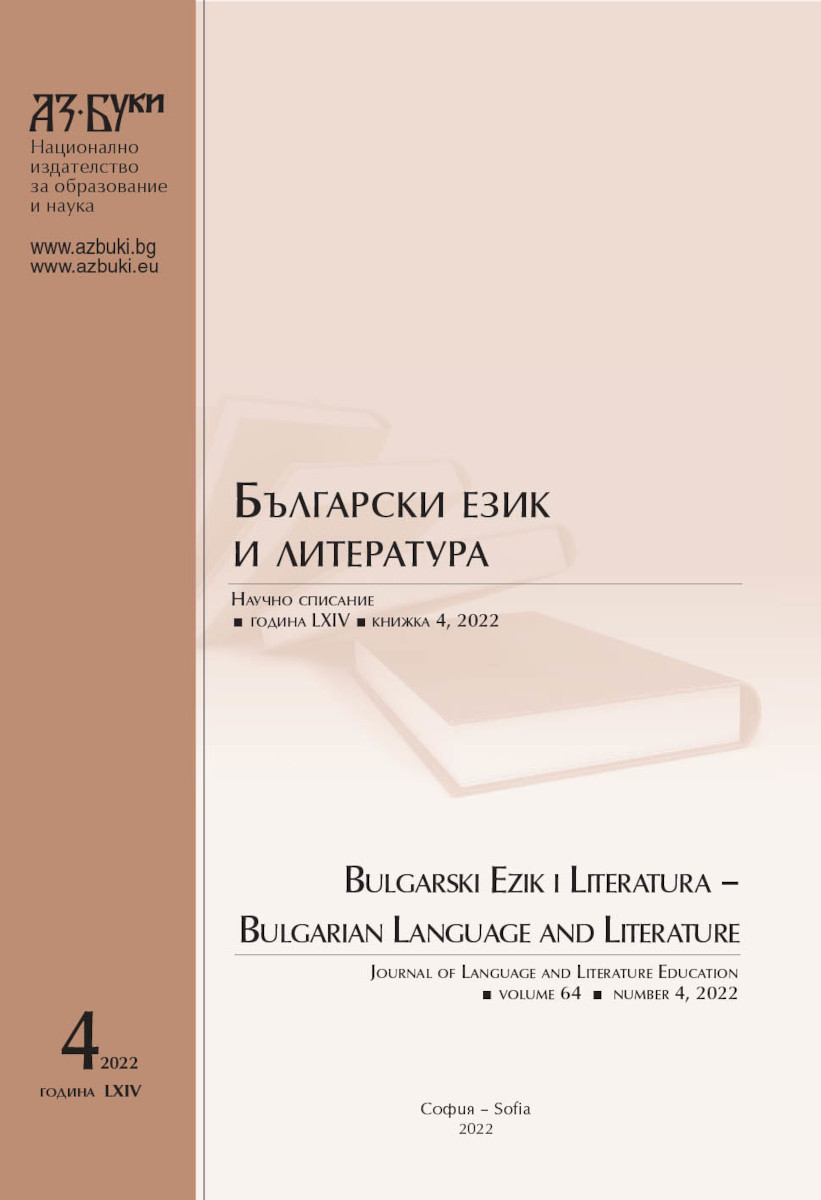
The article is devoted to the work of the Bulgarian writer of the XXth century, Angel Karaliychev. In the second half of the XXth century, his most famous fairy tales and stories for children were translated into Russian, including the collection “Bulgarian Folk Talesˮ in two volumes. In the Soviet Union, Karaliychev's fairy tales were included in collections of fairy tales of Slavic peoples and represented Bulgarian folklore in collections of fairy tales of the peoplesof the world published in Russian. Despite the fact that the last book edition of Karaliychev's fairy tales in Russian appeared in the 1980s, his works continue their life in the new century in electronic format, on the Internet. Karaliychev's fairytales, addressed to children 4 – 10 years old, tell about eternal values in a language understandable for children, they also introduce to children and adults the realities of Bulgarian life, the heroes of Bulgarian folk tales, expanding the horizons of the Russian reader.
More...
The article focuses on the process of mixing languages (translanguaging) in the public inscriptions of Veliko Turnovo. There are two main principles that presuppose the occurrence of mixed inscriptions and that structure the local landscape – the presentation-of-self principle and the good reasons principle. In this context translanguaged writing reflects the deliberate manipulation of the features of the two languages – English (in its variety as a global language) and Bulgarian (the local code) to produce hybrid language forms that evoke different connotations. The ethnographic analysis is carried out within the theoretical framework of Linguistic Landscaping Studies with a special focus on the indexability of the material world, code preference and feature analysis.
More...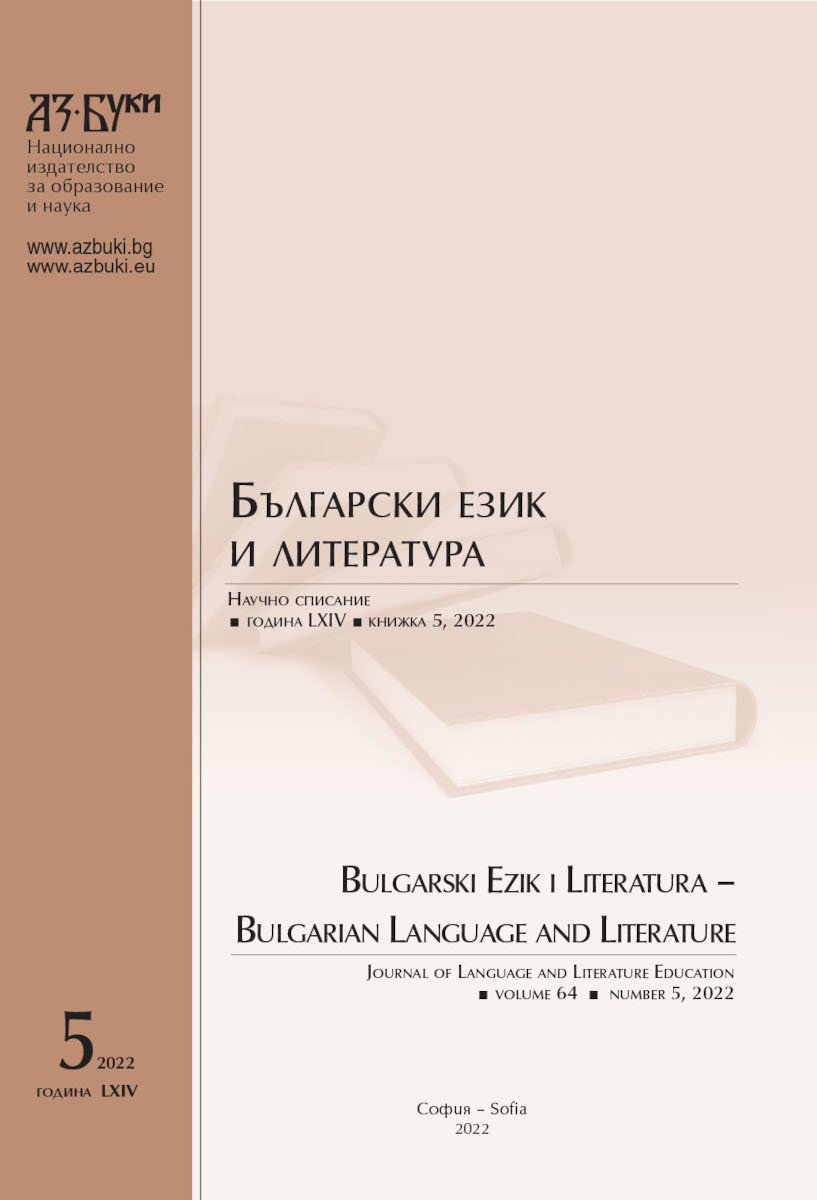
The present study is the first one that aims to present a comparative analysis of the bills for the use of the Bulgarian language introduced in the Parliament since 2004. The conclusion reached as a result of the comparative analysis is that the texts of the bills have quite a lot in common rather than having differences in terms of both the main ideological positions and the weak points that prevented the adoption of such a law over the years. In addition to this, the conclusions impose the idea that a qualitatively new approach is needed in the drafting of the normative act– the law on the Bulgarian language should regulate a unified state language policy to protect the language as the basis of national identity and thus to encourage the development of education, science and culture in the Republic of Bulgaria.
More...
The subjunctive mood has been widely discussed from the perspective its selection in complements of volitional, directive and emotive-factive predicates (Picallo 1984, Raposo 1985, Ambar 1988, a.o.). Subjunctive questions and other type of subjunctive main clauses, on the other hand, have not been subject to much systematic research. Some works (Ambar 2016, Giannakidou 2016) suggest that, in main clauses, the selection of the subjunctive mood codifies the expression of the speaker’s evaluations. In line with this view, we discuss the syntactic expression of the Bulgarian dali-questions which do not consist in true requests for information but rather display a flavour of wondering encoded in the occurrence of dali and its morphological make up combining the subjunctive particle da and the interrogative particle li. Considering the properties of the Balkan subjunctive particles, we discuss the syntactic expression of Bulgarian dali-questions building on previous analyses of Bulgarian yes-no questions (Dimitrova 2020).
More...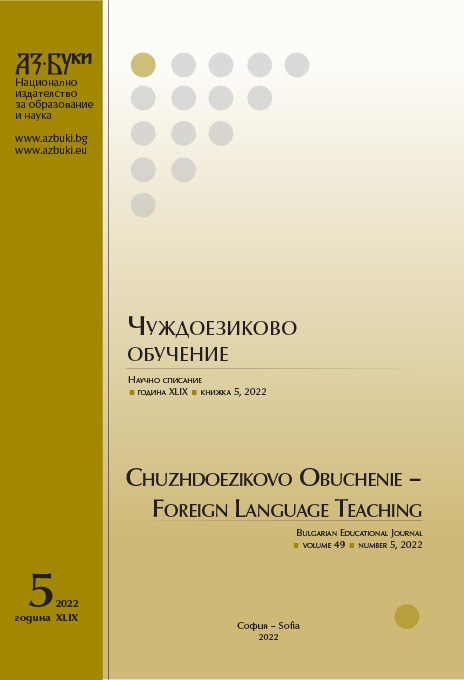
The article examines the life and work of Italo Calvino, a writer with a huge contribution to Italian literature. His life path, political and moral views are examined. The text analyses Calvino’s work and how his life experiences influenced him.
More...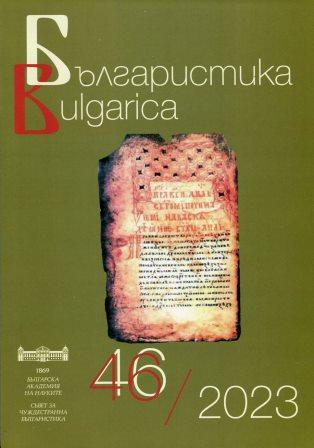
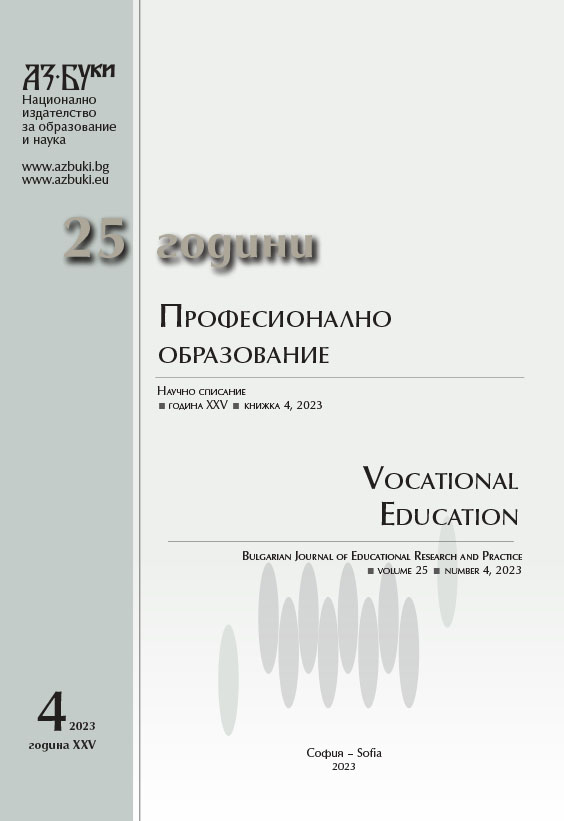
The paper is part of an empirical study of Anglophone travel books describing Bulgaria. Its subject are the images through which the topic of ‘Bulgaria’ is communicated to the British public at the beginning of 20th century. These images are found to be informed by the symbols of the dominant discourse iconography as well as by innovative approaches to the representational paradigm. The paper applies the historical discourse approach to the process of uncovering the link between the representations of Bulgaria in English travel writing and the models of identification deriving from the socio-political reality of the division between the colonial Great Powers and the marginal newly-liberated states. The constructivist focus on the continuous mutually constitutive interaction between social reality and communication is pivotal in the study. The travelogue is interpreted as a communicative act in the course of which the subject and the object position themselves and assume or attribute to each other identities matching their social roles. The images of „gentlemen“, „peasants“, „warriors“, unlock models of identification that either reaffirm the status quo in the British-Bulgarian relations or advocate a closer engagement of Britain with Bulgaria.
More...